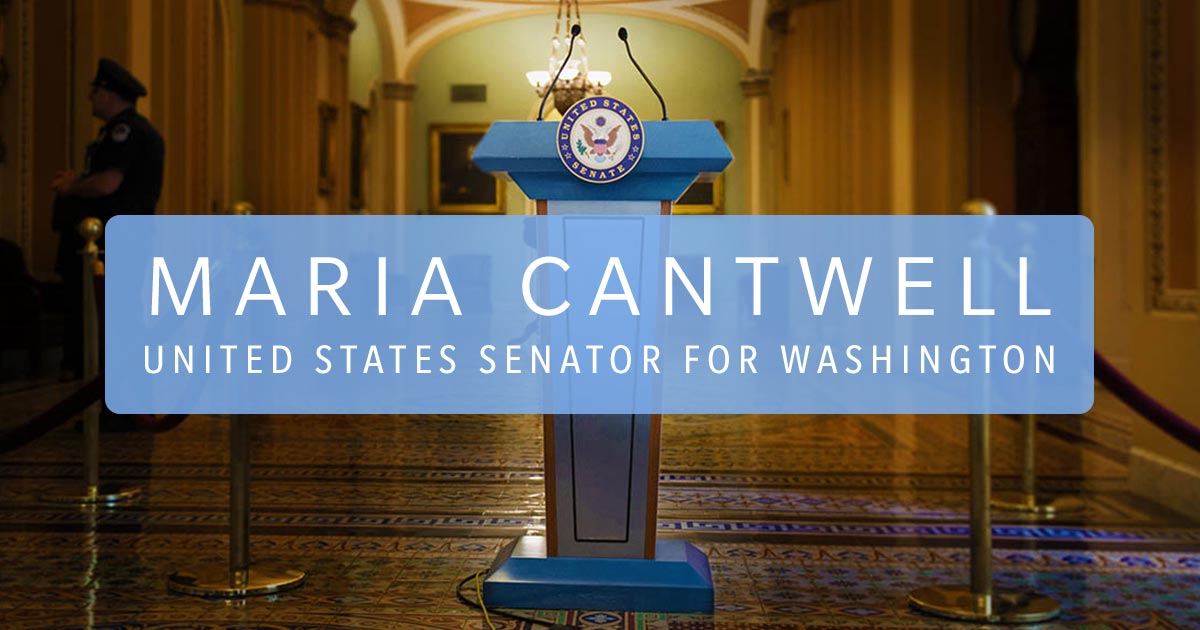Source: United States Senator for Washington Maria Cantwell
Western WA Gets $13.8 Million for Rail Infrastructure to Prevent Landslides and Improve Passenger Rail Service
SPOKANE, WA.— Today, U.S. Senator Maria Cantwell (D-Wash.) announced a total of $14.8 million in federal grants has been awarded to two important rail infrastructure projects in Western Washington. The funding comes as part of a dramatic increase in rail infrastructure spending included in the President’s infrastructure package and spearheaded by Cantwell.
Sound Transit’s Pierce County Rail Capacity and Reliability Improvement Project received $10 million from the Consolidated Rail Infrastructure and Safety Improvements (CRISI) grant program. The project encompasses a series of track and signal improvements between DuPont and Tacoma to increase passenger and freight rail capacity, which will allow double-tracking along the corridor. Once completed, the project will allow for between 4 and 16 additional daily trains along the Amtrak Cascades line, reduce the average 30 minute delays on Sounder Commuter Rail, and increase service reliability. The funding will support preliminary engineering and environmental review.
“As I-5 congestion continues to increase, Puget Sound commuters and travelers need reliable rail service between south Pierce County to Tacoma, Seattle and beyond,” said Senator Cantwell. “This $10 million grant will help eliminate three rail bottlenecks between Tacoma and DuPont, allowing Amtrak to run trains more efficiently between Seattle and Portland and reducing delays for the Sounder commuter rail.”
The Washington State Department of Transportation (WSDOT) will also receive a $3.8 million to fund the fourth phase of WSDOT’s rail landslide mitigation program. These landslide reduction projects include installation of catchment walls to stop debris from reaching tracks, slope stabilization, drainage improvements and slide warning fences.
“Winter storms cause frequent landslides on the rail tracks between Everett and Seattle, at times causing Sounder rail service to be suspended for several hours while the tracks are cleared. So WSDOT has embarked on this larger project to shore up the hillsides along the route to prevent the landslides from reaching the tracks. This grant, for the fourth phase of the project, will build three catchment walls along the route that will keep the earth in place during wet weather events,” said Senator Cantwell.
The grant comes from the Consolidated Rail Infrastructure and Safety Improvements Program (CRISI). CRISI helps fund capital projects that improve intercity passenger and freight rail transportation safety, efficiency, and reliability. Nationwide, the FRA allocated $368,577,000 for 46 projects. At Senator Cantwell’s urging, funding for CRISI was quadrupled for FY22 as part of the Bipartisan Infrastructure Law, from $362 million in 2021 to $1.5 billion in 2022.
As chair of the Senate Committee on Commerce, Science and Transportation, Sen. Cantwell is a strong proponent of improving rail infrastructure in Washington state and nationwide. In December, she wrote to Secretary of Transportation Pete Buttigieg in support of the Pacific Northwest Corridor Reliability – Landslide Mitigation project.
Phase I of the WSDOT landslide mitigation project was completed in 2016 and invested more than $17 million in federal American Recovery and Reinvestment Act funds to reduce the risk of landslides at six landslide prone sites between Seattle and Everett. Phase II of the program invested more than $10.9 million of federal, state and private sector funding for landslide mitigation measures at six additional sites. In 2020, Sen. Cantwell announced the award of $3.72 million in FRA funding for Phase III, which will serve a busy section of the rail corridor south of Mukilteo that has a history of slides leading to rail line closures.
Since completion of these improvement projects, no landslides have reached the tracks in those upgraded areas to disrupt train service.
###
